Photo Credit: Wild Feet Productions
Antoinette Wilson is a passionate filmmaker, dedicated to living out her beliefs and role modeling a healthy relationship with the natural environment. Since 2015, she has been working with Happen Films as a researcher, writer, and producer.
Antoinette was raised in Christchurch, New Zealand, and describes her childhood as very conventional and city bound. “I had no connection with nature as a child and actually a fear of nature. You know, the food came from the supermarket, going bush was something other people did,” Antoinette laughed. “It was a bit odd for Mum and Dad when I was in my teens that I had a real calling to environmental subjects. I was interested in saving the environment and saving the whales, and when I was 15 I decided to be a vegetarian, which was mortifying for my mum.”
Looking back now, she realizes that she didn’t fully understand exactly what she was fighting for back then. “I just knew that something was wrong and needed to be right and I wanted to be part of that,” she explained.
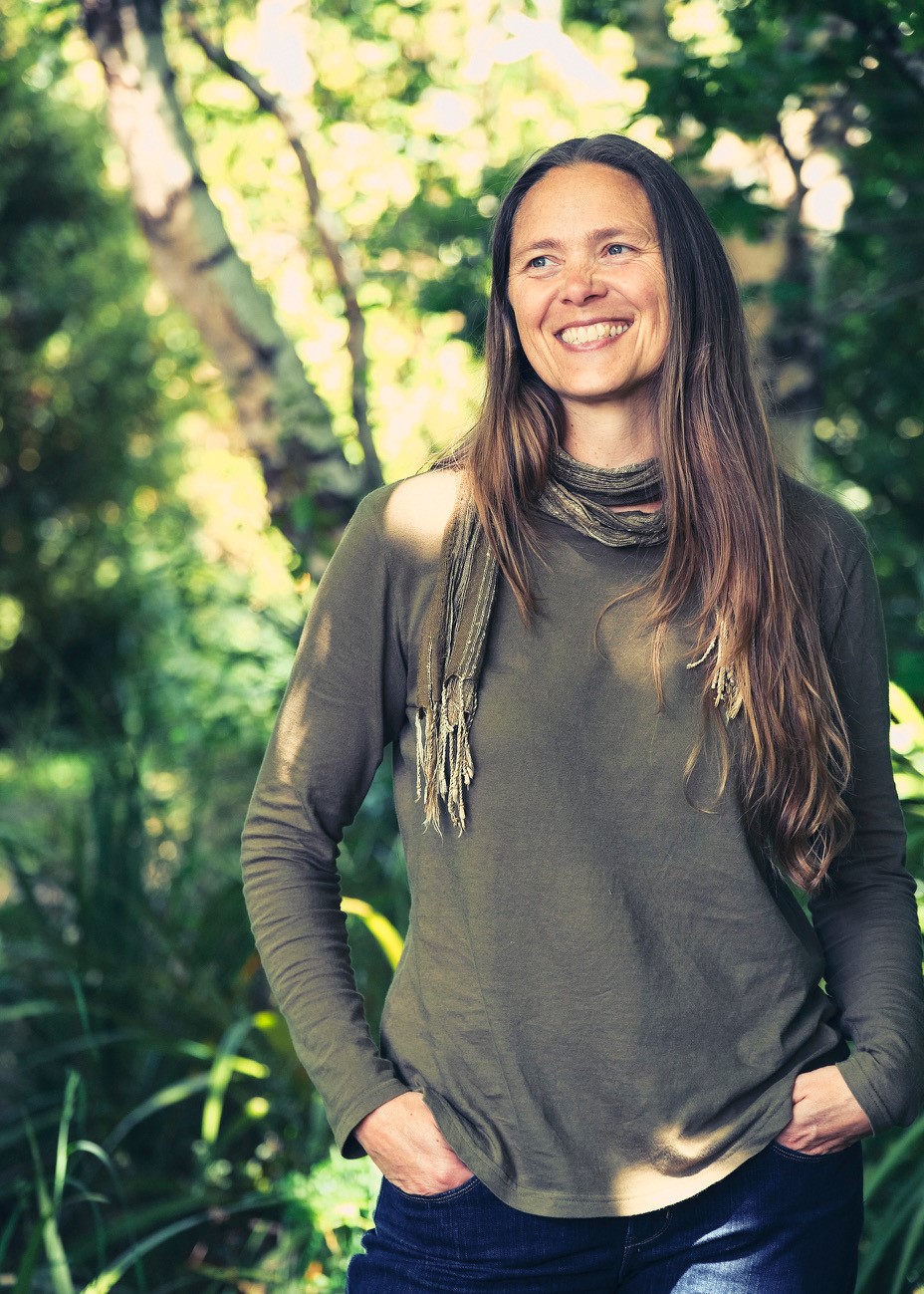
Photo Credit: Jason Hosking / jasonhosking.com
At age 16 she had a life-changing experience that sparked her interest in understanding and addressing social inequities. During an overseas exchange year in Brazil, she had the opportunity to participate in a youth summit as part of the first United Nations Earth Summit held in Rio in 1992. It was an exciting week, listening to talks by Jacques Cousteau and other influential environmentalists. The most impactful revelation for her though was discovering that, in preparation for hosting the international event, the city had evacuated all its impoverished residents from the area. They temporarily beautified it for the week of the summit, then allowed the poor to return to their normal lives once the event was over. “That had a huge impact on me,” said Antoinette. “The notion that it was all actually just a game. It was all just, you know, politics and then back to business as usual.”
Another profound growth experience occurred after her university years when she went backpacking in South America with her mother and sister. Staying at three-peso-a-night hostels and living a backpackers lifestyle allowed her to see the true inside of the countries they visited, and she became very aware of the social injustices.
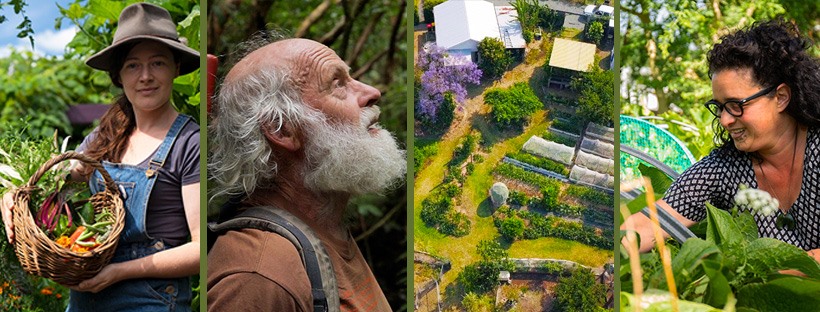
After that trip, Antoinette came home, got a job, got married, and settled into a career in book publishing. “I kind of did what everybody does, tried to live that kind of normal life that all my friends were living,” said Antoinette.
Her personality, though, is not one that fits easily into the mold of a “normal life.” In her late 20’s she separated from her husband, moved to Australia for work, and took up tango dancing. She soon became quite passionate about tango and her life began to revolve around dancing. “I ended up moving to Argentina and opening up a hostel for tango dancers. It was the best time of my life. It was like a complete immersion for 10 years. I literally didn’t do anything but dance tango, socialize with people who danced tango, think about tango and tango music – it was my entire life.”
Eventually her health, which had always been fragile, began to deteriorate. She became interested in adjusting her diet to address health issues and happened across a book called Nourishing Traditions by Sally Fallon. “It is actually a 600-page recipe book, but the first 60 pages are all of the reasons why you shouldn’t shop in a supermarket really, all of the things that we don’t tend to know any more about where our food comes from. And it was mind blowing. It was a complete worldview shift. I had had no kind of comprehension of where my food came from. I had never been interested in growing it or knowing what went into growing it or anything,” admitted Antoinette.
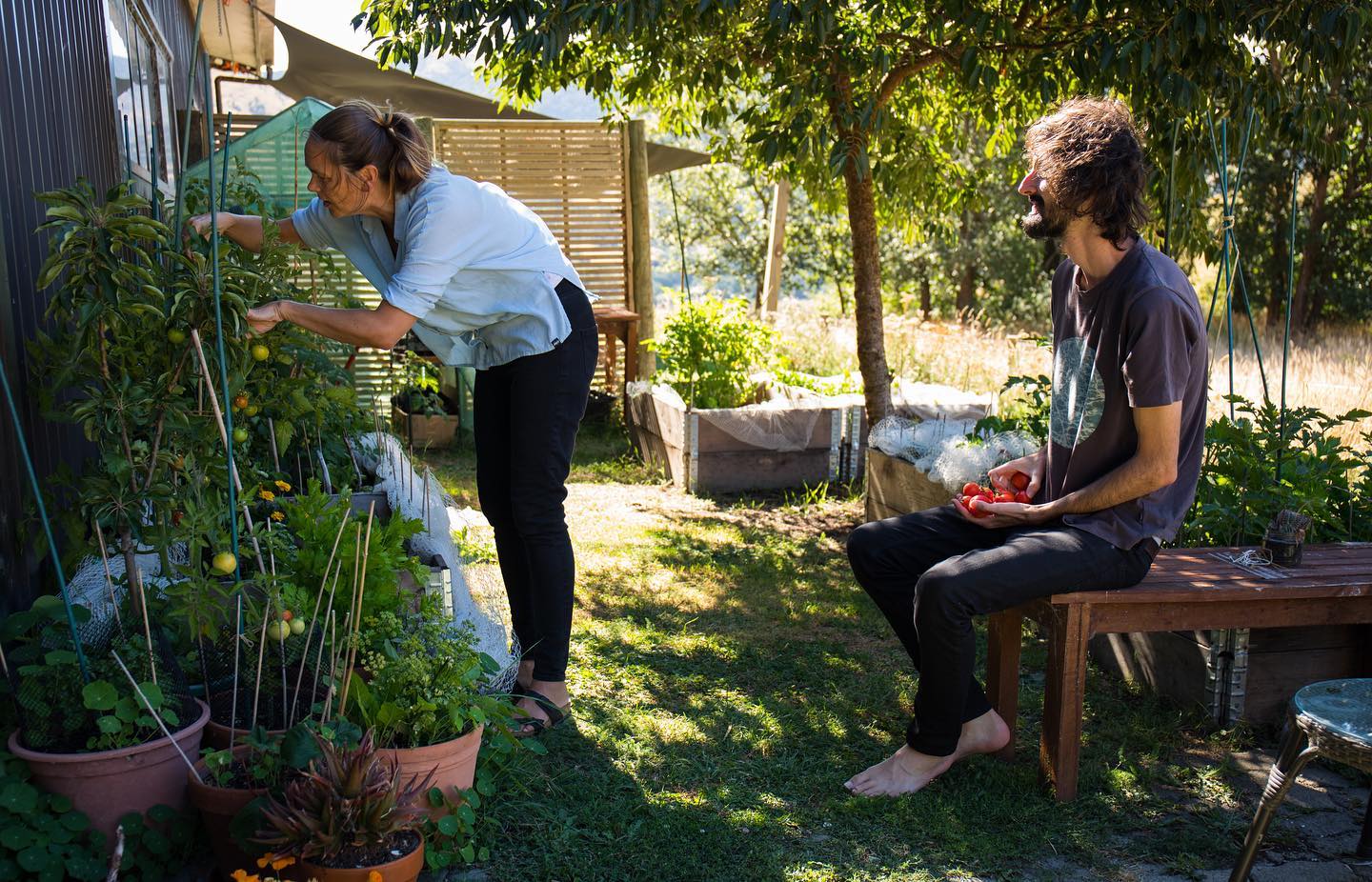
She started growing tomatoes and basil on the terrace and thinking about what she was eating. As she became more aware of this aspect of her life, she began to crave more connection with nature and living in the loud, intense inner city of Buenos Aires began to feel wrong.
Antoinette returned to New Zealand and within six months she was living on a rural property for the first time in her life. She started growing food but had no idea what she was doing. “Half the vegetables went to seed because I was too scared to pick them, I thought I might pick them at the wrong time or something,” she laughed. “I didn’t even know what to do with them because I was a terrible cook.”
So, she took a job at an organic market garden to learn how to grow vegetables. At first, she worked just 4 hours a week, in addition to her fulltime job as a freelance book editor. “Again, it was just like a complete world shift. I loved it. I loved being outside in any weather, I loved harvesting vegetables,” she said. She gradually began taking on more and more work there, writing the newsletter, managing the labor schedule, and before long she was working full time. She took a permaculture design course and was profoundly impacted by the work of writers like Charles Eisenstein and Joanna Macy. She began thinking more about how the world works and the systems that create inequities.
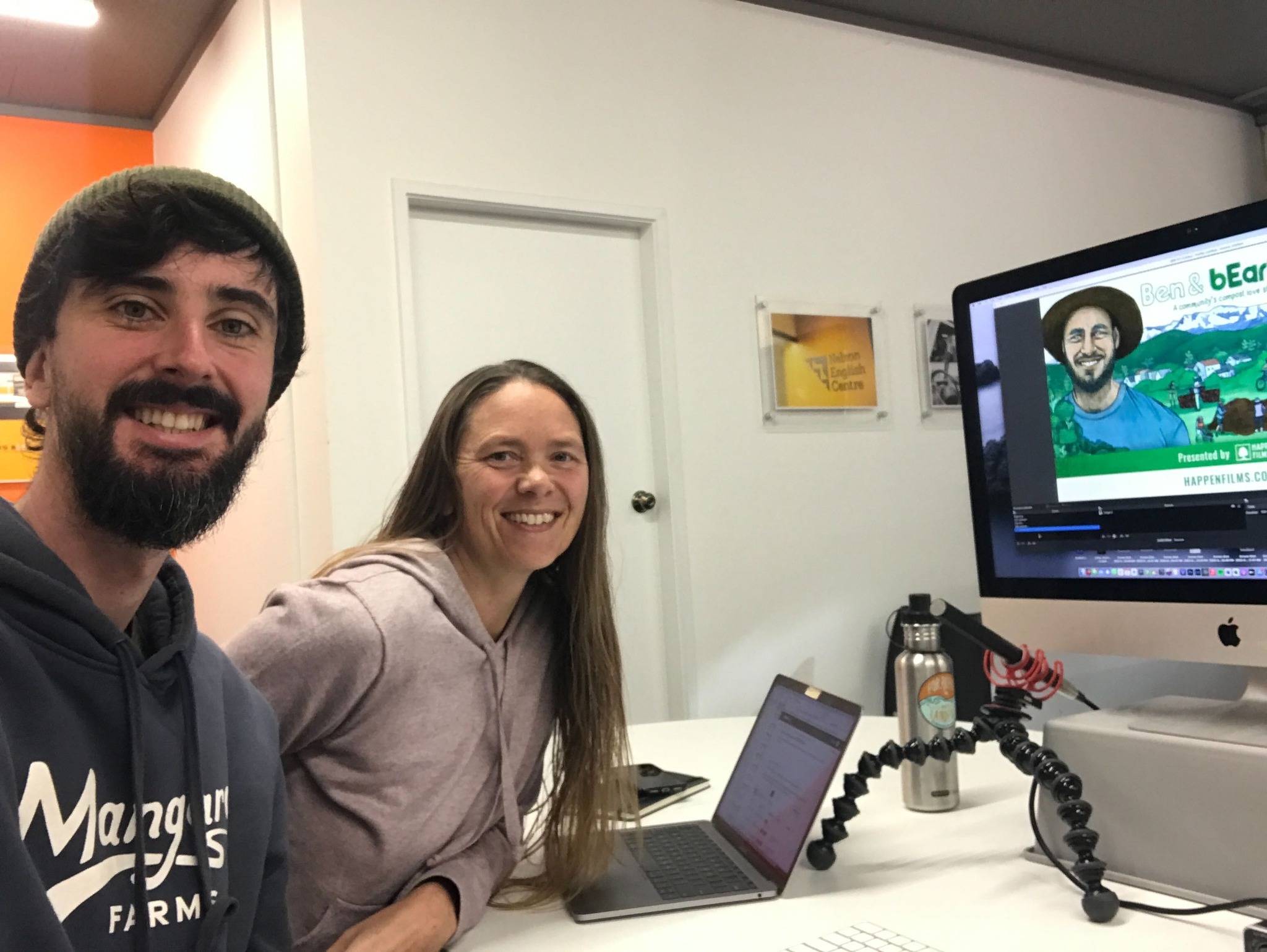
It made sense to her to start living in community. “Somebody sent me an e-mail with a subject line ‘free rent in an eco-village for a year?’ and I thought, yes, that sounds good! I packed up everything and moved to Australia for this one-year project.” It was a documentary film project with nine people living together on the land and exploring what it would take to live within in a one-world ecological footprint. The filmmakers were Jordan Osmond and Samuel Alexander and mid-way through the year Antoinette joined the pair as a co-writer to help bring the film together. This film became the first feature film by Happen Films.
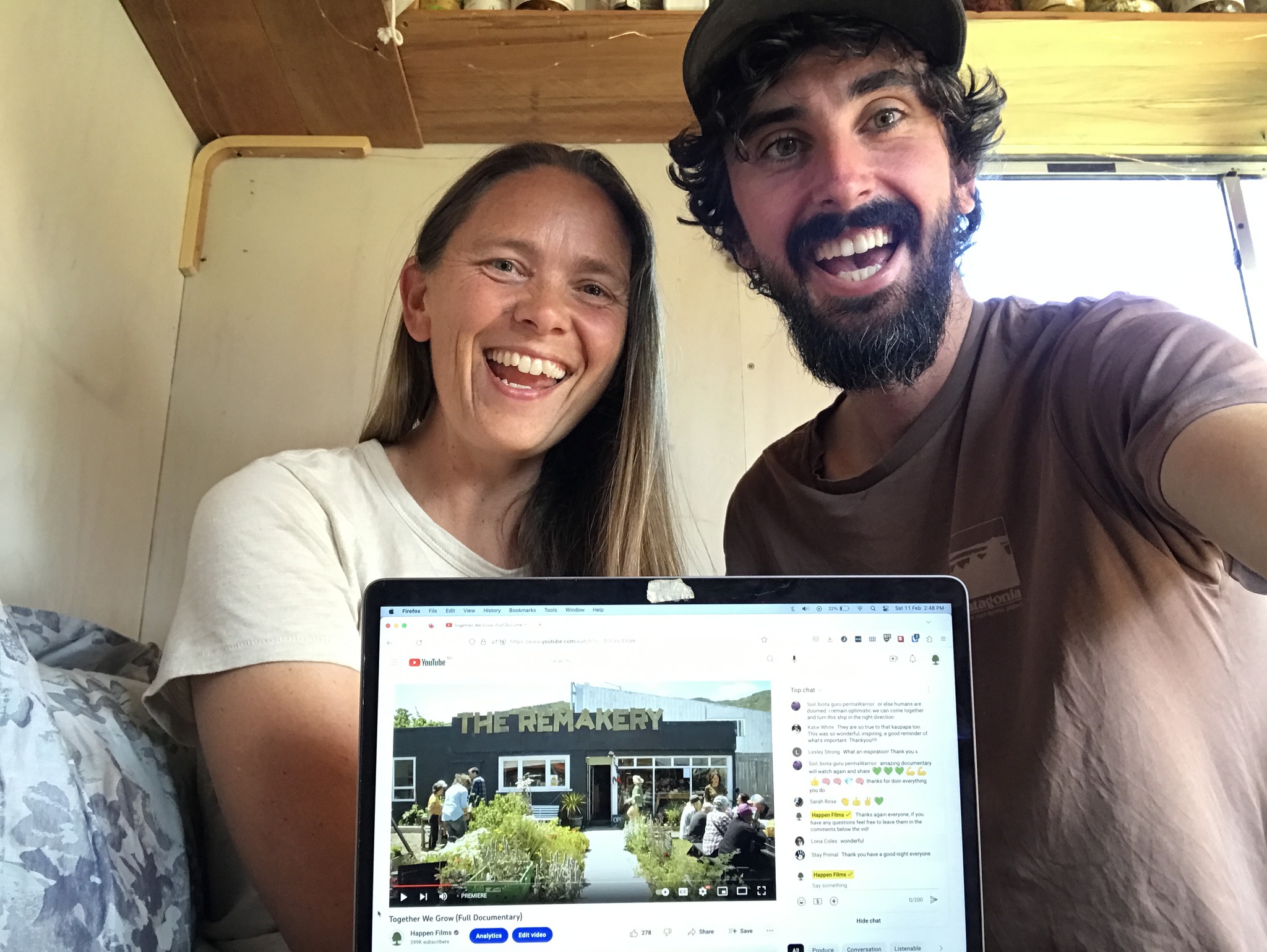
Antoinette and Jordan soon became a pair and after the community living experiment was over, they moved back to New Zealand and began making short films together exploring permaculture, simple living, organic gardening, and regenerative farming.
Happen Films stands out among filmmakers documenting the environmental crises with its positive and uplifting spin on a heavy topic. “This is very intentional,” said Antoinette. “Jordan and I were impacted by our reading and our film watching, by the negativity and the ‘down’ that you experience from many of those sources. They are terrifying and sad and very real, and they don’t offer an accessible response. It really annoys me now when I read a book that has lots of interesting and important information, but there’s no ‘how to respond’ chapter,” she laughed. “We came to the conclusion that the inspiration and the hope and the solutions need to be the main message because that is what activates you. That’s what makes you want to go do something.”
Antoinette is a passionate person by nature, and in her earlier years she was a self-proclaimed environmental evangelist. She burnt bridges that way though and has learned that the only way that we create real change is by role modeling. “And that’s what the films are trying to do,” she said, “role model change.” The people they feature in their films are not just talking the talk, they have made lifestyle changes to live out their beliefs. “It’s happening and it’s beautiful and they’re thriving and there’s joy in it,” Antoinette said. “And if you see that, then yes, you hopefully come away inspired. I think for anybody to see that role modeling, to see those changes happening, it just makes it a little bit easier to take that step. It opens your mind a little bit to the possibility of change.”
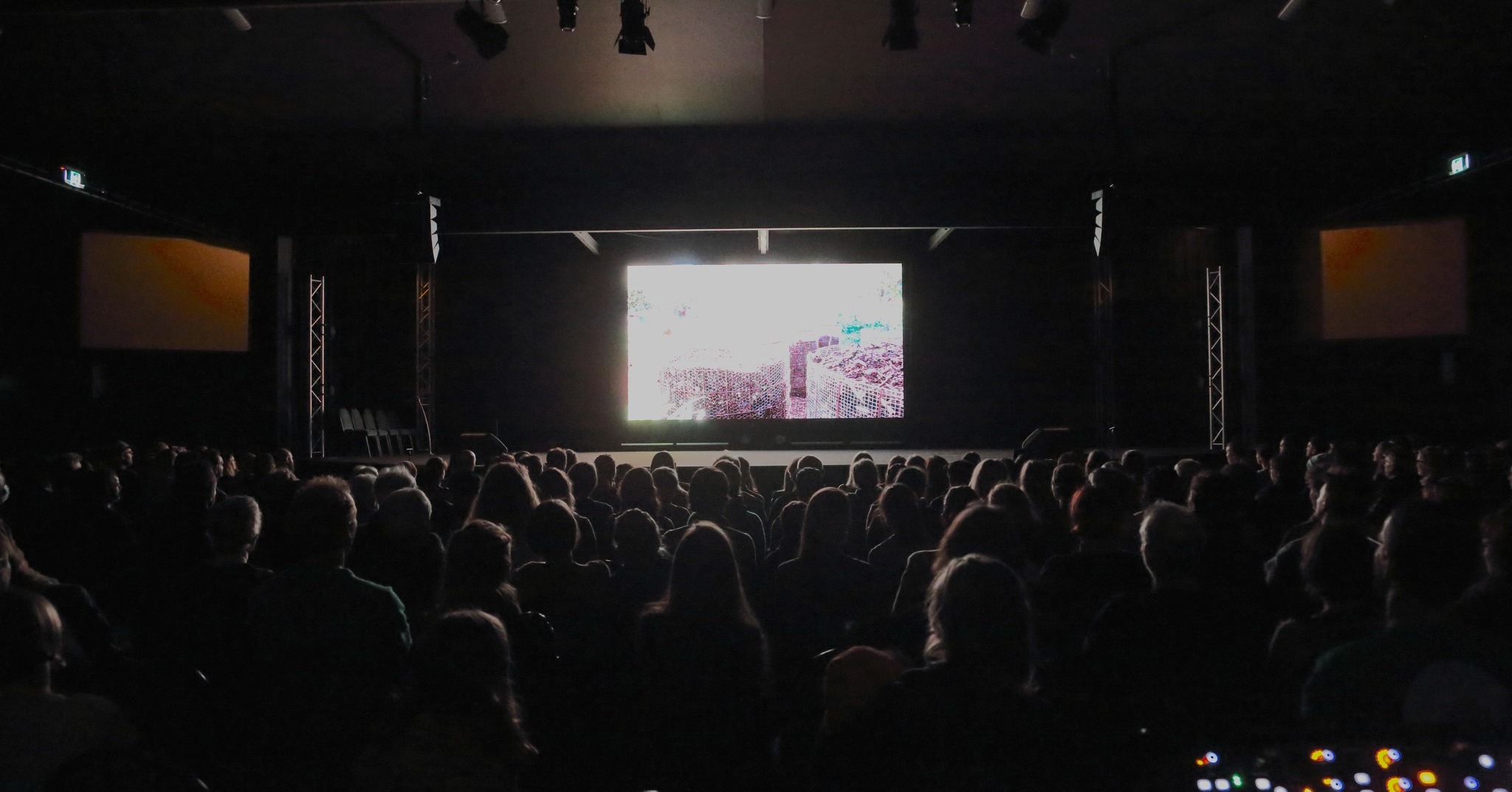
She is quick to acknowledge that what has been doable for her can be much more difficult for people in different life situations. Choosing to not have children has made it easier for her to make more extreme lifestyle changes quickly. She has chosen a predominantly organic diet for 15 years now and acknowledges the reality that this makes food substantially more expensive. “I’ve made choices about what I prioritize buying or not buying to enable me to choose organic, but I’m also simply in a privileged position where I’m able to make that choice,” she said.
She has also made significant efforts to reduce waste in her life by buying used items and thinking deeply about the items she uses and owns. “Again, if we’re in a position to choose, I think we have to think really deeply about everything that we consume,” she said. “Why we’re buying it, how we’re buying it, where we’re buying it from, the packaging that it’s in, and what its end of life is. It’s a choice to think about everything that you bring into your life.”
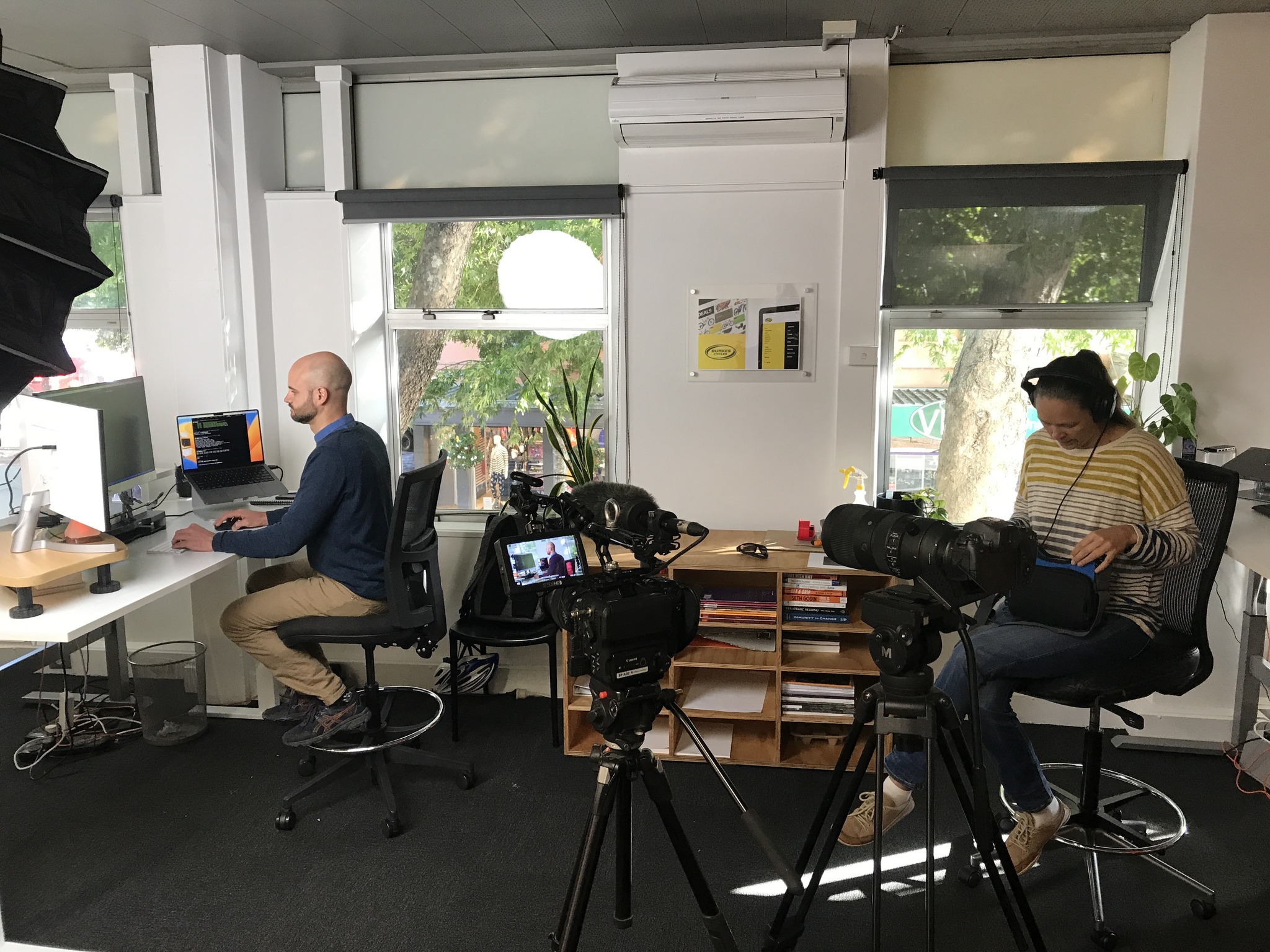
Even with her passion and dedication, there are aspects of living simply that Antoinette still struggles with. She and Jordan have recently built a tiny house which has challenged them immensely as they have tried but not always succeeded to use all non-toxic and renewable resources. She also recognizes that eating meat creates a considerable challenge. “I think that [eating meat] is a challenging issue for people to face no matter what lifestyle or perspective we’re coming from. I don’t feel that animals should be in any way fenced in or caged, but I also feel that for our health we do need to eat meat. Most of us, not all. So, there’s a tension there that’s not going away quickly,” she admitted.
Antoinette, through her life and her work, seeks to understand reality with eyes wide open but not get lost in the seeming hopelessness of environmental and lifestyle change. Instead, she focuses on the joy that aligning our efforts with our beliefs brings. Living in this manner, to the best of our varied abilities, step by tiny step, is what will truly draw us closer to nature and bring humanity into alignment with our beautiful earth.
Thank you, Antoinette, for helping lead the way!
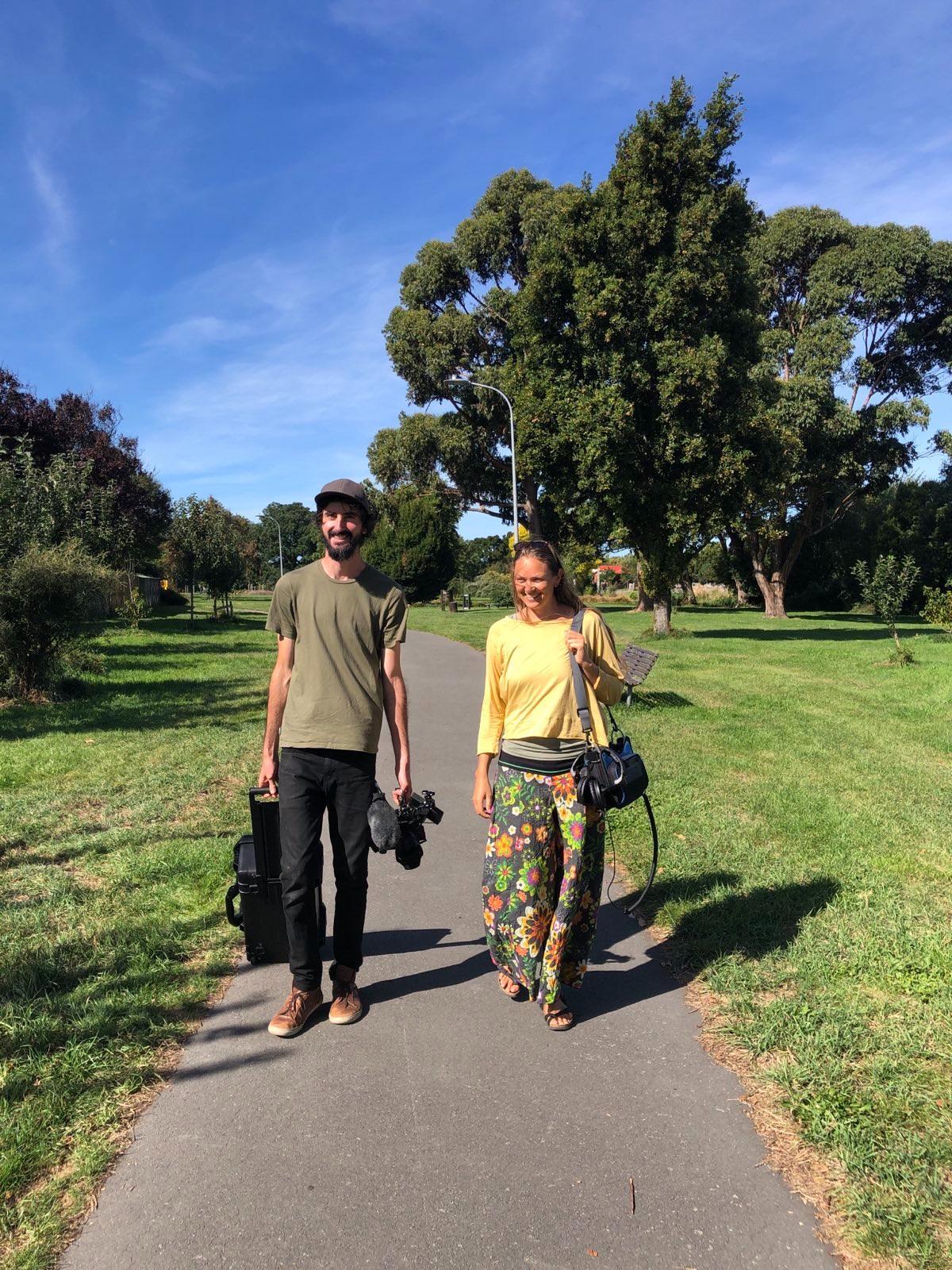

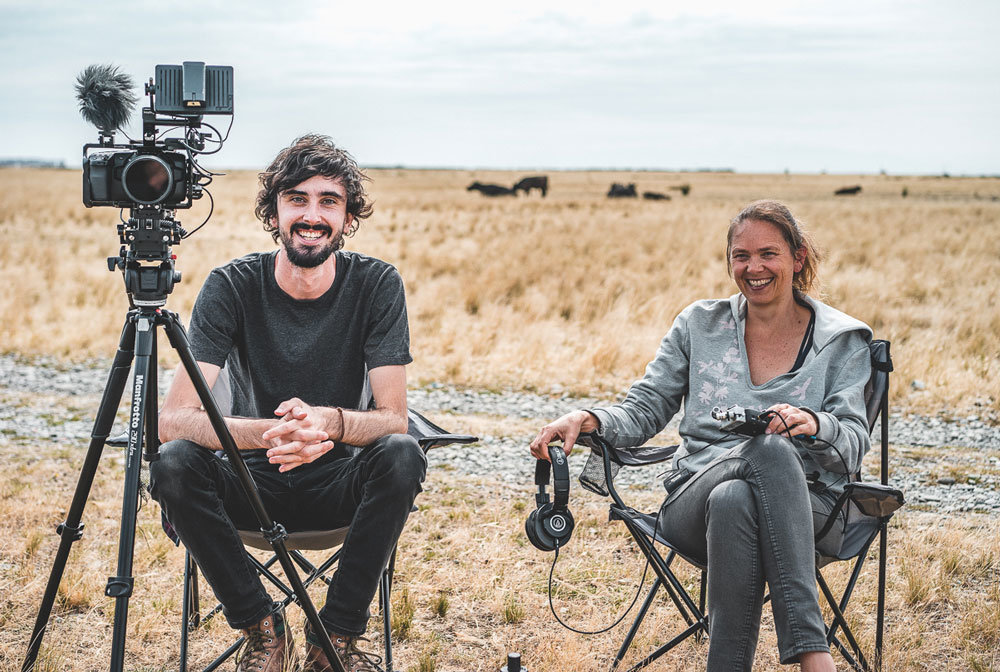
Antoinette and Happens Films are so inspiring! Thanks for sharing this 🙂
My pleasure – I loved getting to meet Antoinette and hear her story.